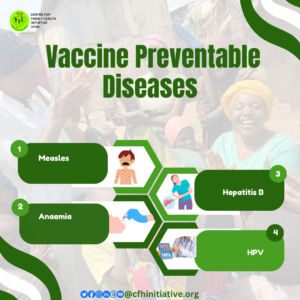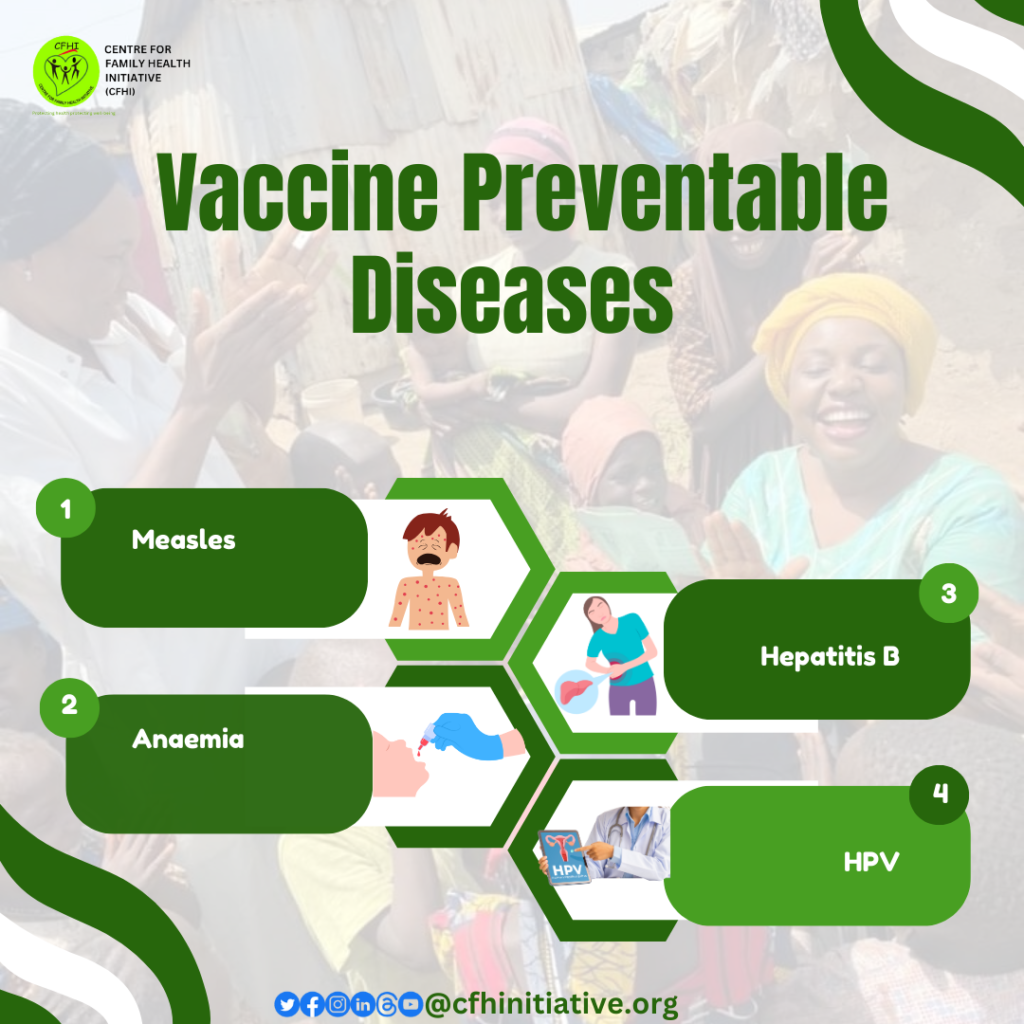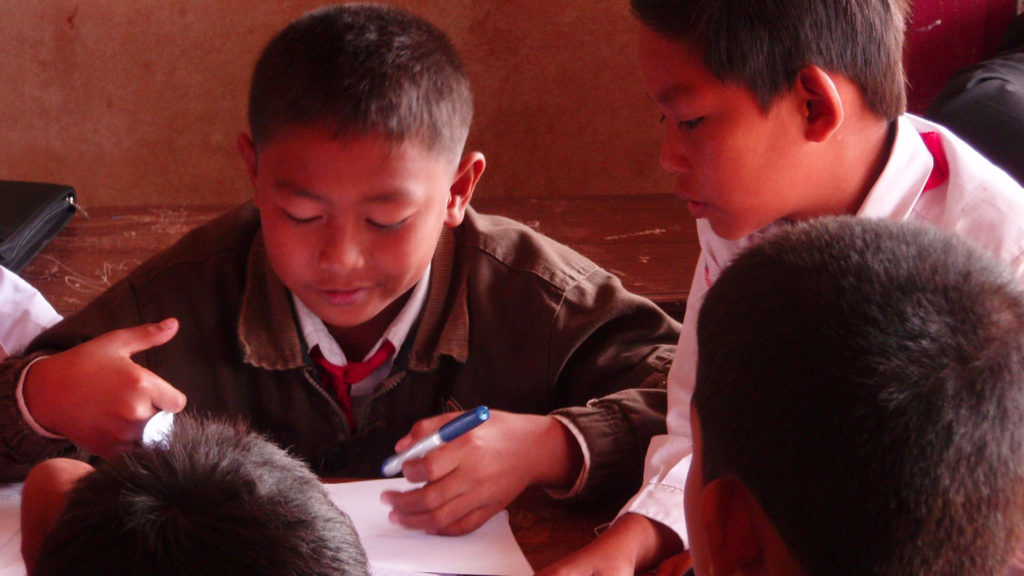Millions of lives are saved annually by vaccination, making it a success story in global health and development. Vaccines lower the chance of contracting an illness by enhancing your body’s defenses against infection.1
Vaccination also reduces the risk of spreading the diseases among family members, school mates or colleagues, friends and neighbours, as well as to other people in the community.2 However, despite their proven efficacy, vaccine-preventable diseases (VPDs) continue to pose significant challenges globally, underscoring the importance of vaccination efforts.
VPDs are illnesses that can be effectively prevented through vaccination. These diseases range from relatively common infections like influenza and measles to more severe conditions such as polio and hepatitis. While some VPDs have been largely eradicated in certain regions due to successful vaccination campaigns, others remain prevalent, particularly in areas with limited access to healthcare and vaccination programs.
Measles, for example, once considered eliminated in many developed countries, has seen a resurgence in recent years due to gaps in vaccine coverage and hesitancy.3 The highly contagious nature of measles underscores the importance of high vaccination rates to achieve herd immunity, protecting vulnerable populations such as infants who are too young to be vaccinated and individuals with compromised immune systems.
Polio serves as another stark reminder of the importance of vaccination. While significant progress has been made in reducing polio cases globally, the disease remains endemic in a few countries. Efforts to eradicate polio entirely continue, highlighting the necessity of sustained vaccination efforts and international cooperation. In Nigeria, the Nigeria Polio Lab Sample Transport (PLST) Project sought to contribute to Goal 2 – Stop poliovirus transmission and prevent outbreaks in non-endemic countries – of the Global Polio Eradication Strategy 2022 -2026. It focused on increasing the speed of detection and precision surveillance system.4, 5.
Influenza, commonly known as the flu, poses a yearly challenge due to its ability to mutate rapidly, necessitating annual vaccination campaigns. While influenza vaccines may not offer complete immunity, they significantly reduce the severity of illness and lower the risk of complications, especially among vulnerable populations such as the elderly and individuals with chronic health conditions.6
Hepatitis B and human papillomavirus (HPV) vaccines represent notable advancements in preventing certain types of cancer. Hepatitis B vaccination at birth has significantly reduced the incidence of chronic hepatitis B infection and liver cancer, while HPV vaccination has led to a decrease in HPV-related cancers, including cervical cancer. In 2023, CFHI with support from the National Primary Healthcare Development Agency (NPHCDA), Women Advocates for Vaccine Access (WAVA), and other stakeholders, trained and equipped 10 Human Papillomavirus (HPV) vaccine champions from Kurudu ward in Bwari Area Council on demand generation, sensitization, and referral for HPV Vaccine Uptake in Kurudu Community. As of December 2023, about 4000 people were sensitized, and 2300 girls were mobilized for HPV vaccination in Kurudu ward.7
Vaccine hesitancy, fueled by misinformation and mistrust, poses a significant obstacle to achieving optimal vaccine coverage. Addressing vaccine hesitancy requires comprehensive public health education efforts to dispel myths and misconceptions, build trust in vaccines, and emphasize their safety and efficacy based on scientific evidence.
Furthermore, ensuring equitable access to vaccines is essential to reducing disparities in disease burden and achieving global health security. Efforts to improve vaccine distribution infrastructure, strengthen healthcare systems, and address socioeconomic barriers are critical in reaching underserved communities and achieving universal vaccine coverage.
Join CFHI’s “Monday Health Burst” initiative on all social media platforms for weekly discussions on basic health concern.
References:
https://www.who.int/health-topics/vaccines-and-immunization#tab=tab_1
https://www.ecdc.europa.eu/en/vaccine-preventable-diseases
https://www.who.int/health-topics/vaccines-and-immunization#tab=tab_1
https://www.cfhinitiative.org/ongoing-projects/
https://www.cfhinitiative.org/media-releases/annual-reports/cfhi-annual-report-2022-2/
https://www.who.int/news-room/fact-sheets/detail/influenza-(seasonal)



